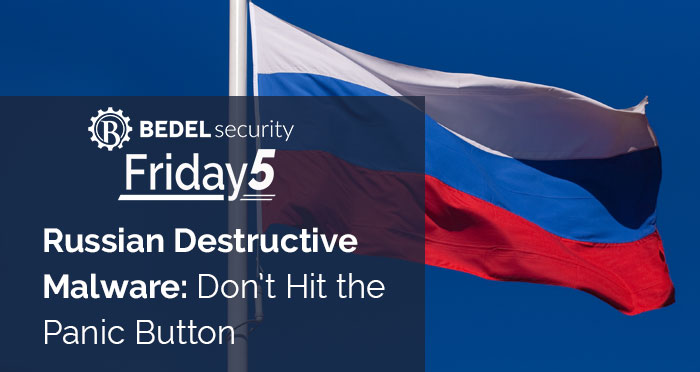Russian Cyberthreats
This week the threat from Russia to the Ukraine has turned to reality. The attack was preceded by cyber threats probably long before the physical...


After spending some time this week helping our customers with ransomware preparation, I found a statement on the FBI’s website that would be a great tool for Financial Institutions (FIs) and really all businesses to know. This statement is the testimony given to the Senate Judiciary Committee just last week. As every official government statement seems, it is very lengthy, so I’ll help all to break it down to five key points you should know:
The full statement is located here: (https://www.fbi.gov/news/testimony/america-under-cyber-siege-preventing-and-responding-to-ransomware-attacks).
If you need help with your Incident Response Plan, Tabletop Tests, or improving your cyber resiliency, please contact us at support@bedelsecurity.com.
5 Key Ransomware Controls
https://www.bedelsecurity.com/blog/5-key-ransomware-controls
CISA's Ransomware Guide Takeaways
https://www.bedelsecurity.com/blog/cisas-ransomware-guide-takeaways
5 Tips for Building an Effective Incident Response Plan
https://www.bedelsecurity.com/blog/5-tips-for-building-an-effective-incident-response-plan
5 Tips for Cyber Incident Tabletop Testing
https://www.bedelsecurity.com/blog/5-tips-for-cyber-incident-table-top-testing

This week the threat from Russia to the Ukraine has turned to reality. The attack was preceded by cyber threats probably long before the physical...

Everyone is on high alert right now because of Russian ransomware attacks as a part of the conflict in Ukraine.

This post is intended to help community financial institutions appropriately prioritize their response efforts to the Log4Shell vulnerability. If...